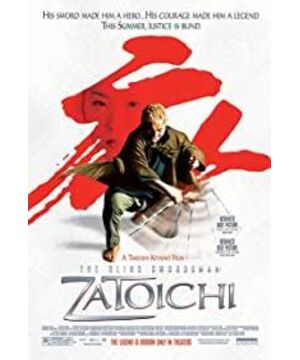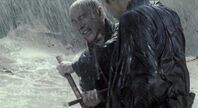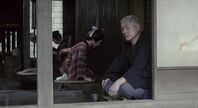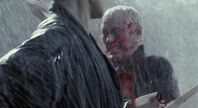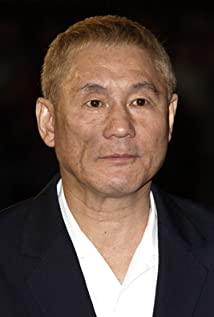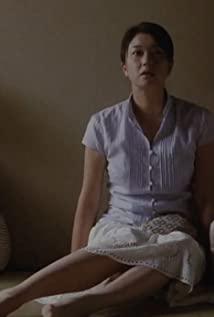[…]
This film is a dramatic carnival as a whole: I particularly admire several points of this work, that is, its sense of rhythm; its attitude; it is full of countless Momentary inspiration; its huge entertainment: fighting scenes and some small humor; its clever narration of one or two sub-themes/sub-story; its photography, its music, it is very beautiful to me, Bring me a full range of pleasure.
Rhythm and attitude I want to say together: This film has a wonderful, Kitano-style rhythm; the music throughout the film, especially the climax of the final runaway, is the direct expression of this rhythm: playfulness, carnival, crazy. The rhythm of the plot and narration is based on my language summary and expression. It cannot be said, and it can only be experienced by watching the film in person. I used to appreciate his behavior that I didn’t understand, but today I have learned to appreciate it; I always felt that his behavior was too dramatic, artificial and unnatural, and even out of control. This was because I was watching his previous films. When the time, the feeling is constantly produced. I think this loss of control destroys the sense of beauty and violates my aesthetics of advocating nature. But today I watched Kitano’s film and learned to appreciate this unexpected dramatic gesture: every plot and musical gesture are an indispensable factor for integrating the entire work; I only discovered this gesture today, no matter how much Exaggeration and unreal, but also beautiful: these gestures are all momentary inspirations: momentary artistic creations: they are artificial, exaggerated, dramatic, natural, real, and Wang Yangming's (I always like to quote Wang Yangming, but objective The influence of Shangwang School of Mind on Japan is almost omnipresent; the root of this is probably the Taoist "virtue", but the influence of Zen and Wang Yangming is direct). Here is a great combination of spontaneity, naturaliness and artificiality, arbitrariness and arbitrariness. I used to automatically favor the first two aesthetically, while denying dramatic gestures and exaggerations; I didn't expect that dramatic exaggerations can also be natural and real. The harmonious combination of the two is beauty, and it is a kind of force, a kind of natural force. The film is so good, right here, I have only learned to appreciate this beauty and power until today. I have to say that I have received a new beauty education and experienced a new aesthetic enlightenment.
A small plot in the film, the story of the brother and sister, is well grasped; it incorporates several more fashionable concepts and involves some of the more sensitive sexual consciousness and issues, such as pedophilia and transvestite. But I am very grateful that the director is restrained on this subject, using and grasping it properly, no more, no less, and no abuse of them.
Due to the level of violence in the film, the UK positioned it as over 18 years old. The fighting scene is wonderful, it has a strong entertaining nature, but it is not the most exciting part of the film itself. The film is fortunate in its overall rhythm, narrative, plot, photography, editing, music (except performance) and other dramatic gestures (have to be repeated again). A few scenes, such as the peasants hoeing the ground in the beginning, and jumping in the farmland on rainy days (what is that for? Please forgive my ignorance in agricultural knowledge, haha), chopping wood, building houses in the last part, dancing and carnival (With the addition of tap dancing, it is very interesting and has a strong sense of play.) All these moments are the performance of this rhythm. This film is really worth looking back several times.
I like the music very much and it is wonderful; the geisha dance is very beautiful; the older sister plays the piano, and the younger brother dances very moving.
[...]
View more about The Blind Swordsman: Zatoichi reviews


